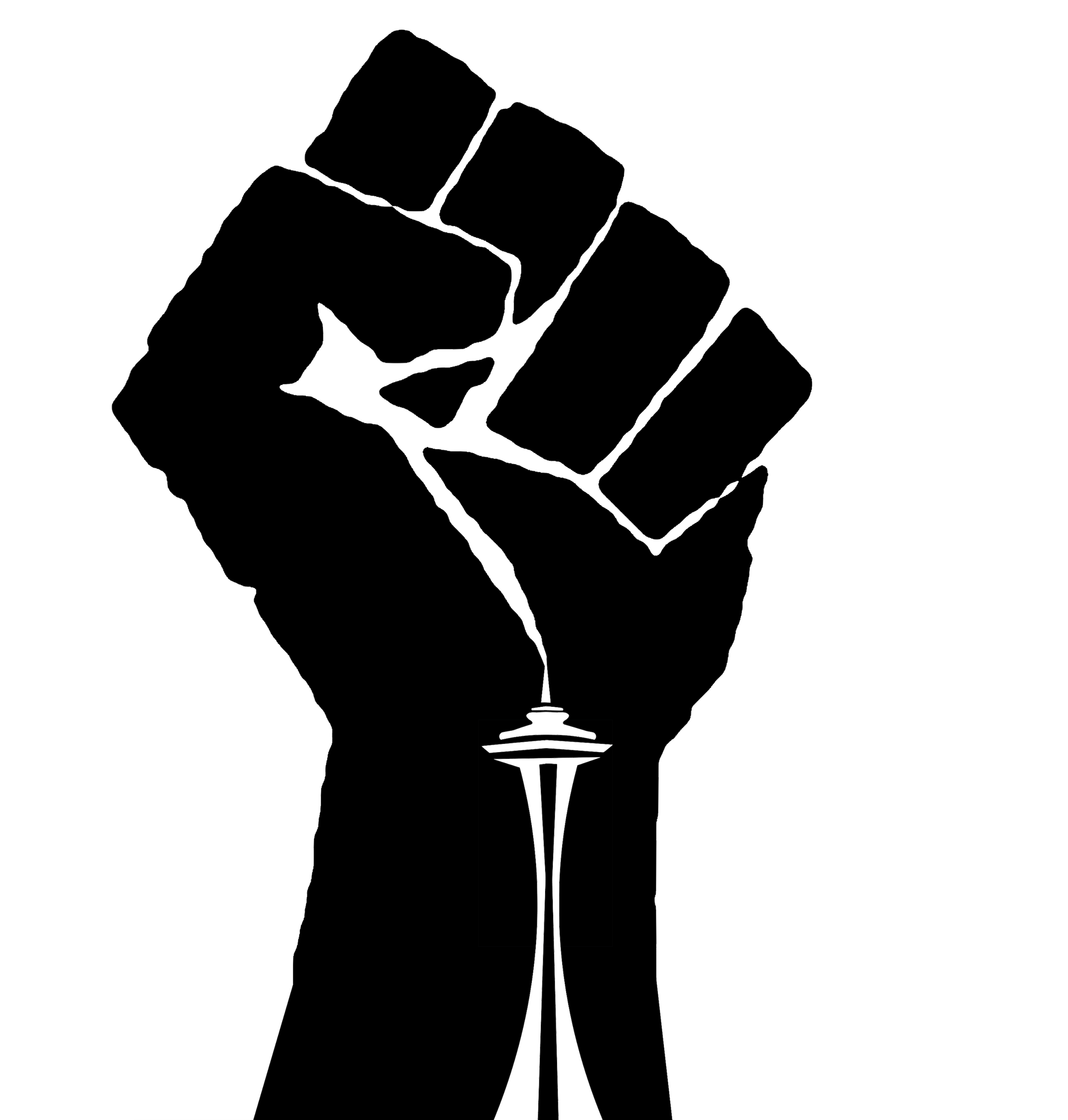Let’s meet the candidates for Seattle’s District VII school board position
/These are eight candidates for school board. Some of them were at the forum last week. Others were not.
By Matt Halvorson
I learned a lot about the people hoping to represent my neighborhood on the school board last Wednesday night.
In case you missed it, Betty Patu, our longtime school board rep in District VII (southeast Seattle) resigned in June, and the remaining six school board members will appoint her replacement. Twelve people have applied for the position, and the board will make its choice in September. It was good to see most of those board members at the forum, hearing from the candidates and the community.
Tonight is another opportunity to meet the field of hopefuls at Rainier Beach High School, where the district will host another candidate forum from 6-9 p.m.
After meeting eight of the 12 candidates at the District VII Candidate Forum on July 31, above all, this was clear: If I could trade the entire current school board for seven of these folks, I would do it in a heartbeat. Any of them. Obviously some are more aligned with my priorities than others, but this is a strong, diverse field of passionate, qualified candidates for office. I am grateful to all of them for the work they’re already doing in our community, and I appreciate them for stepping up and volunteering for a thankless, unpaid, highly tedious school board seat.
I appreciate them all the more because this is such an important moment for our schools and such an important decision for our current board members. By flooding them with authentic, community-based candidates who will step in ready to represent Southeast Seattle in all its often-overlooked glory, the odds are stacked in favor of equity. For once.
Between Patu’s resignation and Zachary DeWolf also hoping to vacate his seat as he pursues city councilhood, plus four more seats up for election in the fall, we have an opportunity to enter 2020 with a completely different school board in Seattle. It starts here, with this important decision. Who will be the first of the new faces?
The forum’s format was informal and intimate, with each candidate visiting each table in the audience long enough to chat, answer a few questions, and have a small-group conversation.
It was just like the 2016 OSPI candidate forum (also hosted by SESEC and friends), and I walked away feeling like I had really met each candidate as opposed to just hearing them speak from a stage.
Every candidate talked knowledgeably about the district’s glaring equity gaps, and they all acknowledged that the long-standing inequity in our schools has placed a particularly heavy burden on our southeast Seattle community. Every candidate agreed on a need to implement ethnic studies with integrity and with no more delays. Like I’ve said, it was a strong pool of candidates, so we’re working from a strong baseline..
Little was discussed that didn’t connect back to the fight for equity, and within that framework, one of the themes of the night was urgency. People throughout the room expressed a need for action, for something different, for an end to the spinning wheels and endless conversation about inequity. Good intentions rust, as they say.
Now, I’d like to pause here to offer my apologies in advance for the implications of having opinions. Just to reiterate, I’m thrilled with the depth of this candidate pool and impressed with every candidate’s passion and good intentions. They are standing before us volunteering their time and souls to service on the school board. And they’re opening themselves up to everything that comes along with that process, including being considered by people like me who have thoughts and opinions. But the fact also remains that we have to choose one person, and that we don’t get to just take the whole field.
So, as we seek an equity champion, a change-maker with an unshakable sense of urgency and possibility and love, a hero with an understanding of the relationship between systemic oppression and public education, here are my first impressions of the candidates — my takeaways from the District VII Candidate Forum. I look forward to seeing how tonight’s forum at RBHS shapes my thinking even further.
Emijah Smith has lived out much of the struggle facing students and families in District VII. She grew up in the South End and has committed her life to fighting racial inequity in our community and our schools. She has a master’s degree from UW in public administration with a focus on education policy and on the academic inequities specifically within Seattle Public Schools. As the mother of two Black boys in SPS, the district’s newly adopted focus on Black male achievement is in her professional wheelhouse and also hits close to home. She is active in our schools and our community. Among other things, she said she views the board position “as an opportunity to be authentic,” and her authentic integrity would be an incredibly good thing for our kids and our schools. I would love to see her on the school board.
Sofia Voz seems fully ready to hit the ground fighting for our kids. She described herself as “an agitator and a disruptor, and also a relationship-builder.” YES! She has a deep understanding of our schools and our local context and has high-level experience and relationships within the district. She was one of the only candidates I heard talk using specifics about involving students in decision-making processes and bringing them to the table as problem-solvers, which I believe is an important step toward equity — kids are generally unrepresented and the most-impacted in our public schooling. Sofia described SPS Superintendent Denise Juneau’s goals as “lofty and achievable,” and envisioned times to support and times to push back. I trust her to know what’s right and to know how to fight for it, and I would love to have her representing our kids.
Brandon Hersey was striking in his energy, his clarity of purpose and his impressive body of relevant knowledge and experience. He is a teacher in Federal Way but lives in District VII. He talked about a disconnect between policy and reality for communities when it comes to education, and he mentioned what sounded like an interesting experience under the Obama administration, but I didn’t catch the details. (In my defense, a lot of things were said that night by a lot of different people.) He’s a scoutmaster for the only Black scout troop in the state of Washington, which is interesting, and we also have evidence that he knows how to actually make change happen where he is, which is impressive and important. When he found that he was the only (one of the only? Again, it’s hard to remember every detail…) teacher of color when he started at his school in Federal Way, he didn’t just lament it, and he didn’t wait for the problem to solve itself. He just set about to doing what he could to change the reality, and after finding his way onto some hiring committees and whatnot over a period of a few years, suddenly the school has a much more diverse staff, and the morale and the results are great, and that’s real leadership right there.
Because we have to split hairs here to find ways to differentiate between this many good candidates, the only question I can come up with for Brandon is if he’s too invested in the systems to fully buck them if the situation calls for it — is he a revolutionary or a reformer? I have a lot of confidence that he would be a strong, knowledgable voice for our kids and our neighborhood, and I hope he would feel free to be as bold and unapologetic as we would need him to be.
Dionne Foster’s energy and passion are palpable, and her depth of knowledge and experience are almost as immediately evident. She has an eight-year-old in public school, so she has a firsthand understanding of the effects of systemic racism in our schools. She also works at the Seattle Foundation tackling these same issues, and this battle for better schools for all kids has been her mission in life. She has been out meeting with folks in the community for the past several weeks, and she is clearly a people person who will listen and lead with a team-first mentality. She really, really knows her stuff. She’s already out there forming relationships and building a coalition. She would be an excellent school board rep. Would she be the unapologetically revolutionary voice we need at this critical time? I honestly can’t quite tell. If not, she’s close.
Barbara Rockey leads with love and empathy. She works with kids and families who have been and continue to be actively traumatized by the system, and she mentioned several times a feeling of attachment to this work and this community. She’s emotionally invested, she’s “on the ground” every day, and she advocates a much-needed holistic approach. Is she ready to change a system? I’m not sure. But she would be a loving listener and a breath of fresh air on the board.
Julie Van Arcken is dogged in fighting for solutions when she has found something wrong. She has been a leader in the fight against inequitable school boundaries in Seattle for at least six years now, and she strikes me as someone who will be a surprisingly relentless advocate. She’s gotten a lot of PTA endorsements and a lot of other systemic-sounding endorsements, and she specifically called herself a “supporter” of public schools. She has quit her job in the hopes of being a full-time school board rep, which is quite admirable. It might be an actual step toward day-to-day equity if the most diverse district in Seattle had the only full-timer on the school board. She strikes me as someone who would be under the heavy influence of the teachers union, however, and she announced herself as part of the overly political anti-choice crowd. While she said every single right thing when it comes to equity, she didn’t ultimately strike me as someone I would consider in a field this deep.
Brittany Williams is a professional caregiver, and she exuded that essence. She wants to be on the board because she cares about kids and sees the value of true community. She didn’t demonstrate as deep an understanding of the public school system she’d be stepping into as did most of the other candidates, however, and most of the solutions she suggested were more about finding loving band-aids for small problems than about changing the direction of a train that’s been going one way for several generations. She clearly understands what’s at stake, though, and she seemed engaged and perceptive. She’s a fine candidate, but it was hard to picture her rising to the top of this group at this time.
Jason Hahn seemed extremely earnest, and he’s completely in this mix for the right reasons. He’s had a powerfully bad experience with special education with one of his kids, and he feels the connection and the weight of his neighbor’s burden as impacting himself and his own family. He’d be a wonderful school board member, I’m sure. But also, he’s definitely not the choice. We can’t possibly choose a reasonably qualified white man when there are so many exceptionally qualified people of color — and particularly women of color — to choose from.
Four other candidates — Chukundi Salisbury, Romanita Hairston, Sandra Bosley and Patricia Cheadle — did not attend the forum.
With the board scheduled to choose a District VII rep in September, we still have time to learn more about each candidate. That will continue tonight. See you out there.







